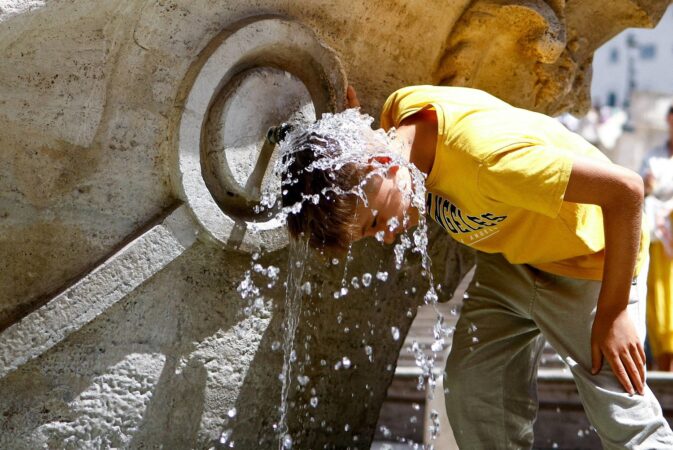Water scarcity has prompted some Greek islands to ban the use of swimming pools and turn to desalination. Just weeks after Greece endured its longest-ever heatwave in June, many parts of the country are now dealing with a new crisis: a severe water shortage.
A state of emergency has been declared in Sifnos, the Cyclades, Leros, the Dodecanese islands, Sami, Kefalonia and parts of Crete.
Residents of these areas are demanding urgent intervention as water resources are being depleted. Water levels are also low in the Attica peninsula, which includes Athens.
On the island of Naxos in the southern Aegean Sea, the largest reservoir has dried up due to low rainfall and hot weather, according to Reuters news agency.
The lack of rainfall in recent months, coupled with scorching temperatures reaching 40 degrees Celsius, has caused this situation. Inadequate infrastructure and lack of maintenance of desalination plants on the islands have exacerbated the problem.
Wildfires have also contributed to the crisis. In June, a fire in Serifos destroyed part of the island’s water supply network, which is now facing its lowest water reserves in 20 years.
With the need for water for both supply and irrigation at its peak, farmers are the worst affected. Reuters reported that many are resorting to wells contaminated with seawater due to low water levels.
As the tourist season continues in full swing, visitor infrastructure is putting more pressure on water resources. Elisavet Filoni, a hydrologist and professor at the University of West Attica, told Greek channel Naftemporiki that increased construction and uncontrolled use of swimming pools have contributed to water shortages on the islands.
Last month was the hottest June on record globally and the 13th consecutive month of record-breaking temperatures, according to the European climate service Copernicus. It was also the 12th consecutive month in which the world was 1.5 degrees Celsius warmer than in pre-industrial times, extremes attributed to man-made emissions.
With dry conditions expected to continue in the coming months, Feloni called for stricter government monitoring and water consumption controls.
Some islands have already taken action on their own. Karpathos and Serifos have imposed restrictions on the refilling of swimming pools. In Vianos, Crete, strict limits have been placed on the use of water for irrigation purposes.
The small Dodecanese island of Lipsi has gone ahead and banned the construction of swimming pools in the hot summer of 2023 to encourage a more sustainable approach to tourism.
The northern island of Thassos is investing in a desalination plant to make its seawater drinkable, Reuters reports.
Where a state of emergency has been declared, water transfers have been accelerated, supplies have been improved, and government funds have been obtained.
Three new wells are planned to be drilled on Crete, while the navy has been transporting water to Leros, according to local press reports.
This water crisis on the Greek islands highlights the urgent need for climate change adaptation and more sustainable management of natural resources.

“Hardcore alcohol maven. Hipster-friendly analyst. Introvert. Devoted social media advocate.”

